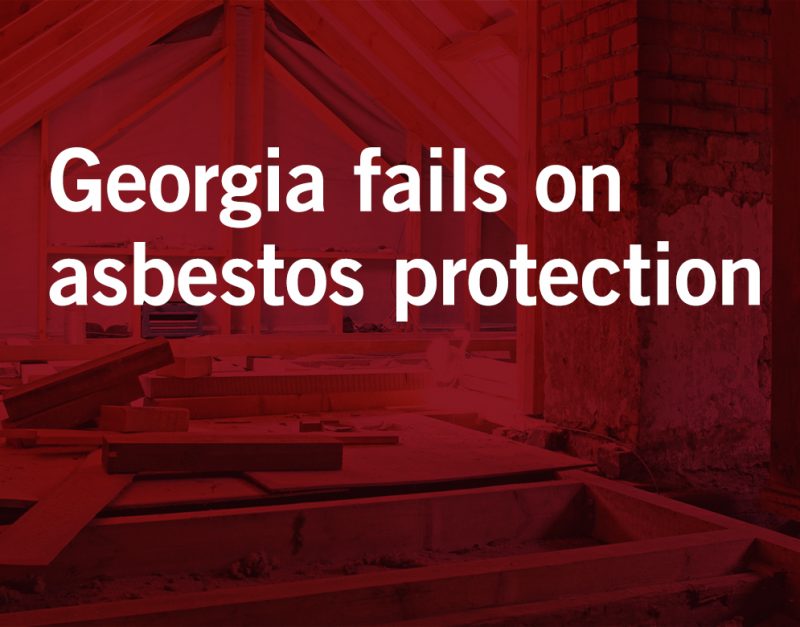 May 19, 2017
May 19, 2017 Did you know that residential renovation projects can lead to toxic asbestos exposure? Most people today are aware of the fact that breathing asbestos fibers can lead to mesothelioma and death. Regulations put in place in the 1970s by the federal government and individual states have stopped widespread use of asbestos in the U.S. These regulations concern commercial and residential structures.
But what happens if you own a home that was built before the 1970s and you plan to renovate or demolish? If no abatement procedures are followed prior to construction, toxic asbestos fibers are likely to be released into the atmosphere as a result of construction activity. There is no safe level of exposure to asbestos and inhaling toxic asbestos fibers can lead to mesothelioma and death.
Regulating Asbestos Abatement Prior to Beginning Renovation or Demolition Projects
States such as Georgia have enacted regulations that require a licensed asbestos inspector to identify and remove potentially hazardous asbestos from the construction site, prior to the beginning of construction activity. Failure to stick to the requirements of the regulations leads to citations being issued by the Georgia Environmental Protection Division. It has recently been discovered, however, that Georgia has not been enforcing this regulation for several years.
The problem in Georgia is that the state stopped funding its asbestos removal program in 2011 and “transferred” the program to the U.S. Environmental Protection Agency (EPA). Since then, no citations have been issued to anyone for failing to follow the requirements of the law. In Atlanta, over 6,500 permits have been issued for residential renovation or remodel in the past three years, and zero citations have been issued for violating asbestos removal regulations. One might think that the construction industry has fully complied with the regulations, but prior to defunding, Georgia issued hundreds of citations for failure to comply with its procedures. As a result of the apparent lack of enforcement, the public has potentially been put at risk for mesothelioma and death.
The Federal Government Requires Asbestos Abatement in Residential Construction, Right?
You might be thinking that since Georgia “transferred” their regulation to the EPA that the federal government now prevents toxic asbestos exposure that could result from residential construction activity. But the Environmental Protection Agency (EPA) limits its oversight to commercial and residential structures with greater than four dwelling units. Said another way, no governmental agency appears to be enforcing asbestos abatement laws as it relates to renovation and demolition of single-family homes.
What Should You Do About It?
So, what should you do about it? If you are planning on renovating your home yourself, you should consider hiring a licensed asbestos expert to inspect your home and arrange for removal of any hazardous asbestos-containing material. Should you hire a contractor to perform the work, or if you work for a contractor, it is important to make sure that proper procedures are followed to avoid potential asbestos exposure to you or your family.
According to a 1980 NIOSH-OSHA report, there is no safe level of asbestos exposure. We must remain informed and vigilant about taking precaution when it comes to asbestos. It has been discovered that the Georgia state agency responsible for policing the construction industry rarely checks to make sure people are following it, and, due to defunding, likely lacks the funds to hold violators accountable. This is putting the public at risk for mesothelioma and death.
Have You Been Diagnosed with Mesothelioma?
The lawyers at Waters Kraus Paul & Siegel are experienced asbestos attorneys who represent victims of asbestos exposure who have contracted mesothelioma. If you (or a loved one) have been diagnosed with mesothelioma, contact us by email or call us at 800.226.9880 to speak with our mesothelioma lawyers. Learn more about how an asbestos lawyer can assist you and your family with a mesothelioma lawsuit.


